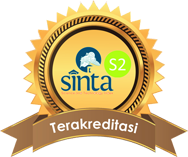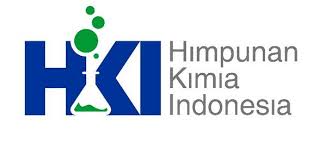Development of E-module Application Smartphone with Socioscientific Issue (SSI) in Biofuels
DOI:
https://doi.org/10.15575/jtk.v7i1.17809Keywords:
biofuels, e-module, learning science, smartphone, socioscientific issueAbstract
This research is motivated by the lack of ability of chemistry teachers to prepare online learning media that requires students to achieve 4.0 technological developments. This research aims to create a valid and practical socio-scientific issue-based learning media. The development of this socioscientific-based e-module is carried out by applying the ADDIE (analysis, design, development, implementation and evaluation) development model. The data collection technique used in product validation is the questionnaire method. Theoretical validation in this study was carried out by expert lecturers, chemistry teachers, and peer reviewers. The validation of expert lecturers is described descriptively to the criticisms and suggestions given. Based on the validation result of the chemistry teachers and peer reviewers, respectively 88.8% and 87.9%, it was stated that the electronic module (e-module) was very eligible. The practicality of the e-module is known from the results of the student response questionnaire, which was a very eligible category. Based on the overall assessment results, the e-module product is feasible to be implemented in chemistry learning.
References
Alfiriani, A., & Hutabri, E. (2017). Kepraktisan dan keefektifan modul pembelajaran bilingual berbasis komputer. Jurnal Kependidikan, 1(1). 12-23. https://doi.org/10.21831/jk.v1i1.10896
Aliyyah, R. R., Rachmadtullah, R., Samsudin, A., Syaodih, E., Nurtanto, M., & Tambunan, A. R. S. (2020). The perceptions of primary school teachers of online learning during the COVID-19 pandemic period: A case study in Indonesia. . Journal of Ethnic and Cultural Studies, 7(2), 90-109. https://doi.org/10.29333/ejecs/388
Anita, A., Afandi, A., & Tenriawaru, A. B. (2019). Pentingnya keterampilan argumentasi di era ledakan informasi digital. Prosiding Seminar Nasional FKIP Universitas Tanjungpura, August. Retrieved from https://www.researchgate.net/publication/343859546_Pentingnya_Keterampilan_Argumentasi_Di_Era_Ledakan_Informasi_Digital
Astarina, A., Rahayu, S., & Yahmin , Y. (2019). Pengaruh pembelajaran pogil berkonteks socioscientific issues terhadap kualitas keterampilan berargumentasi siswa SMA pada Materi ikatan kimia. Jurnal inovasi Pendidikan IPA, 5(1), 31-44. https://doi.org/10.21831/jipi.v5i1.20890
Azwar, S. (2012). Penyusunan Skala Psikologi edisi 2. Yogyakarta: Pustaka Pelajar
Capkinoglu, E., Yilmaz, S., & Leblebicioglu, G. (2019). Quality of argumentation by seventh-graders in local socioscientific issues. Journal of Research in Science Teaching, 57(6), 827–855 https://doi.org/10.1002/tea.21609
Chang, R. (2004). Kimia dasar konsep-konsep inti. Jakarta: Erlangga.
Dampati, P. S., Veronica, E., & Dwi Chrismayanti, N. K. S. (2020). Pengaruh Penggunaan Smartphone dan Laptop Terhadap Muskuloskeletal Penduduk Indonesia Pada Pandemi Covid-19. Gema Kesehatan, 12(2), 57–67. https://doi.org/10.47539/gk.v12i2.135
Dishadewi, P; Wiyarsi, A; Prodjosantoso, AK; Nugraheni, A. R. . (2020). Chemistry-Based Socio-Scientific Issues ( SSIs ) As a Learning Context : An Exploration Study of Biofuels. Journal of Physics: Conference Series, 1440. https://doi.org/10.1088/1742-6596/1440/1/012007
Erna, M., & Anwar, L. (2020). Developing an Interactive Chemistry E-Module for Salt Hydrolysis Material to Face the Covid-19 Pandemic Developing an Interactive Chemistry E-Module for Salt Hydrolysis Material to Face the Covid-19 Pandemic. Journal of Physics: Conference Series, 1655. https://doi.org/10.1088/1742-6596/1655/1/012051
Genel, A., & Topçu, M. S. (2016). Turkish preservice science teachers’ socioscientific issues-based teaching practices in middle school science classrooms. Research in Science and Technological Education, 34(1), 105–123. https://doi.org/10.1080/02635143.2015.1124847
Hanania, J., Stenhouse, K., Suarez, L. V., & Doev J. (2021, December, 20). Energy Education-Crude oil. Retrieved from https://energyeducation.ca/encyclopedia/Crude_oil accessed June 24, 2022.
Kowitlawakul, Y., Chan, M. F., Tan, S. S. L., Soong, A. S. K., & Chan, S. W. C. (2017). Development of an e-Learning research module using a multimedia instruction approach. CIN - Computers Informatics Nursing, 35(3), 158–166. https://doi.org/10.1097/CIN.0000000000000306
Logan, R. M., Johnson, C. E., & Worsham, J. W. (2021). Development of an e-learning module to facilitate student learning and outcomes. Teaching and Learning in Nursing, 16(2), 139–142. https://doi.org/10.1016/j.teln.2020.10.007
Nurmayanti, F., Bakri, F., & Budi, E. (2015). Pengembangan Modul Elektronik Fisika dengan Strategi PDEODE pada Pokok Bahasan Teori Kinetik Gas untuk Siswa Kelas XI SMA. Prosiding Simposium Nasional Inovasi Dan Pembelajaran Sains, 337. Retrieved from https://ifory.id/proceedings/2015/z4pZjcJkq/snips_2015_fitri_nurmayanti_e4c8c1467da686b5b60dd953dd529ca3.pdf
Osborne, J., & Dillon, J. (2008). Science education in Europe: Critical reflections. London: King College.
Pedersen, J. E., & Yerrick, R. K. (2000). Technology in science teacher education: Survey of current uses and desired knowledge among science educators. Journal of Science Teacher Education, 11(2), 131-153. https://doi.org/10.1023/A:1009468808876
Pratiwi, Y. N., Rahayu, S., & Fajaroh, F. (2016). Socioscientific issues (SSI) in reaction rates topic and its effect on the critical thinking skills of high school students. Jurnal Pendidikan IPA Indonesia, 5(2), 164-170. https://doi.org/10.15294/jpii.v5i2.7676
Pujiati, P., Fanni Rahmawati, F., & Rahmawati, R. 2019). Pentingnya E-Module Pembelajaran Peserta Didik di Era Revolusi Industri 4.0. The 2nd Proceeding Annual National Conference for Economics and Economics Education Research, 2, 81-87. Retrieved from http://econference.stkip-pgri-sumbar.ac.id/index.php/NCSE/SPSK
Sadler, T. D., & Donnelly, L. A. (2006). Socioscientific argumentation: The effects of content knowledge and morality. International Journal of Science Education, 28(12), 1463-1488. https://doi.org/10.1080/09500690600708717
Saidah, K., Primasatya, N., Mukmin, B. A., & Damayanti, S. (2021). Sosialisasi Peran Apersepsi untuk Meningkatkan Kesiapan Belajar Anak di Sanggar Genius Yayasan Yatim Mandiri cabang Kediri. Dedikasi Nusantara, 1(1), 18–24. Retrieved from https://ojs.unpkediri.ac.id/index.php/dedikasi/article/view/16065/2102
Stolz, M., Witteck, T., Marks, R., & Eilks, I. (2013). Reflecting socio-scientific issues for science education coming from the case of curriculum development on doping in chemistry education. Eurasia Journal of Mathematics, Science & Technology Education, 9(4),361-370. https://doi.org/10.12973/eurasia.2014.945a
Widodo, W. (2016). Wujud Kenyamanan Belajar Siswa, Pembelajaran Menyenangkan, Dan Pembelajaran Bermakna Di Sekolah Dasar. Jurnal Ar-Risalah. 18 (2). Retrieved from https://ejournal.iaiibrahimy.ac.id/index.php/arrisalah/article/view/1054
Winda, R., & Dafit, F. (2021). Analisis Kesulitan Guru dalam Penggunaan Media Pembelajaran Online di Sekolah Dasar. Jurnal Pedagogi Dan Pembelajaran, 4(2), 211. https://doi.org/10.23887/jp2.v4i2.38941
Zeidler, D. L., Sadler, T. D., Simmons, M. L., & Howes, E. V. (2005). Beyond STS: A research-based framework for socioscientific issues education. Science Education, 89(3), 357–377 https://doi.org/10.1002/sce.20048
Downloads
Published
How to Cite
Issue
Section
Citation Check
License
Authors who publish with this journal agree to the following terms:
- Authors retain copyright and grant the journal right of first publication with the work simultaneously licensed under a Creative Commons Attribution-ShareAlike that allows others to share the work with an acknowledgement of the work's authorship and initial publication in this journal.
- Authors are able to enter into separate, additional contractual arrangements for the non-exclusive distribution of the journal's published version of the work (e.g., post it to an institutional repository or publish it in a book), with an acknowledgement of its initial publication in this journal.
- Authors are permitted and encouraged to post their work online (e.g., in institutional repositories or on their website) prior to and during the submission process, as it can lead to productive exchanges, as well as earlier and greater citation of published work (See The Effect of Open Access).









